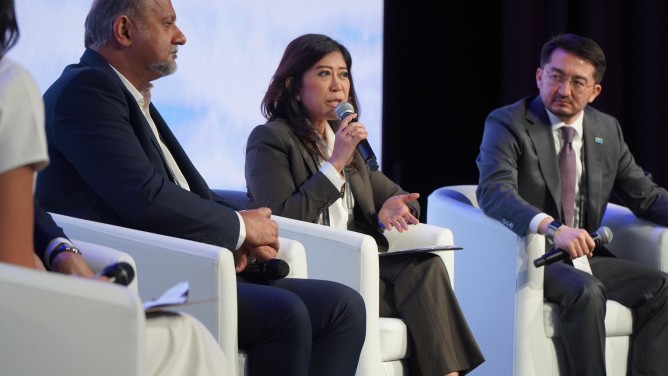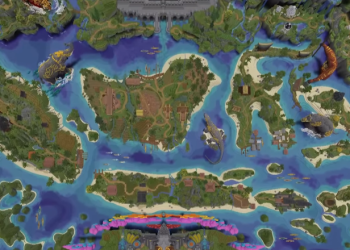Jakarta, Indonesia Sentinel — Indonesia is planning to launch artificial intelligence (AI) applications focused on food security and social welfare. Launched in August 2025, the initiatives was part of a broader push to enhance public services through technology.
The announcement was made by the Communications and Digital Minister (Komdigi) Meutya Hafid during the global tech forum Machines Can See 2025 in Dubai, United Arab Emirates on Wednseday (April 23).
Meutya said the initiative reflects President Prabowo Subianto’s growing emphasis on national food resilience amid rising geopolitical tensions.
“Food security is a top priority for President Prabowo, especially given today’s geopolitical landscape,” Meutya said, in a statement. “Education remains a core belief for Indonesia. We believe that those who design and regulate AI must be smarter than the AI itself.”
The AI applications are designed to bolster Indonesia’s food security systems by enabling data-driven monitoring of food production and distribution, as well as improving the accuracy and efficiency of social welfare assistance programs.
In addition, the government is developing AI-based free health screening services to expand healthcare access, particularly in underserved regions.
Meutya said Indonesia is prioritizing education, food security, and public service delivery as key pillars for national development. Therefore, the government is developing AI applications aimed at strengthening public services.
To support the adoption of new technologies, the government is targeting the preparation of nine million digital talents by 2030. She also emphasized the importance of building AI centers of excellence across the country, including in Bandung, Surabaya, and Papua, to foster inclusivity in technological development.
“Establishing an AI center of excellence in Papua is crucial,” Hafid said. “We believe inclusivity is essential when it comes to AI.”
Read Also:
Indonesia’s Komdigi Investigates Alleged Data Breach Following Cyberattack
On the digital infrastructure front, Hafid acknowledged the formidable challenge of connecting Indonesia’s 17,000 islands. The government is currently preparing the auction of the 2.6 GHz and 3.5 GHz spectrums and expanding fiber optic and submarine cable networks to boost connectivity.
“While there has been progress, it reminds us of the scale of the challenge to build fast, reliable connectivity across 17,000 islands,” she said.
Meutya underscored that the future of AI should not be a privilege reserved for a few nations, but a shared heritage for all humanity. “Technology must reflect the diversity of the world, not just the priorities of a select few,” she said.
As the world’s fourth most populous country, Indonesia is committed to playing an active role in shaping the global technological future, She added.
(Raidi/Agung)

























